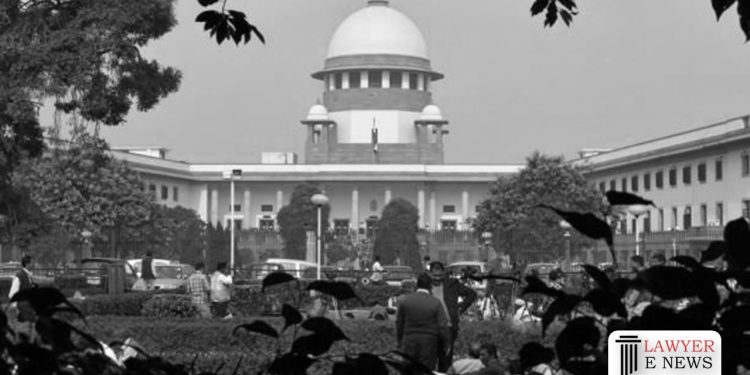No Relief for Defaulters in Auction Process, SARFAESI Act Prevails Over Contract Act: Supreme Court Upholds Forfeiture of Earnest Money

In a landmark ruling, the Supreme Court of India, comprising Justices Dr. Dhananjaya Y. Chandrachud, J.B. Pardiwala, and Manoj Misra, upheld the forfeiture of earnest money deposit in a case involving a failed auction transaction under the SARFAESI Act and its rules. The bench stated, “Forfeiture of earnest money under SARFAESI Act’s Rule 9(5) does not amount to unjust enrichment.”
The case, Indian Bank (Allahabad Bank) vs. Anil Kumar Tandon, revolved around the forfeiture of the respondent’s earnest money deposit after failing to complete the balance payment for a property purchased in a bank auction. The Supreme Court’s decision set aside the earlier High Court judgment which had ordered the refund of the forfeited amount.
The bench observed, “The consequence of forfeiture of 25% of the deposit under Rule 9(5) of the SARFAESI Rules is a legal consequence that has been statutorily provided in the event of default in payment of the balance amount.” This ruling clarifies that the provisions of Sections 73 & 74 of the Indian Contract Act, 1872, concerning compensation for breach of contract, do not apply to SARFAESI transactions.
The Court highlighted the SARFAESI Act’s unique position as a special enactment with an overriding effect on general laws, emphasizing its purpose in expediting the recovery of Non-Performing Assets (NPAs) and reducing the burden on civil courts.
In a detailed analysis of the legislative history and the scheme of the SARFAESI Act, the judgment underscored the Act’s significance in addressing the rising NPAs and the inadequacies of the previous legal framework in loan recovery.
The apex court also noted that while judicial intervention in forfeiture cases under SARFAESI Rules should be minimal, exceptions could be considered in rare and exceptional circumstances. However, the bench clarified that the respondent’s inability to pay the balance amount, attributed to demonetization and other reasons, did not constitute such an exception in this case.
Date of Decision: 02 February 2024
The Authorised Officer, Central Bank Of India VS Rns Shanmugavelu






